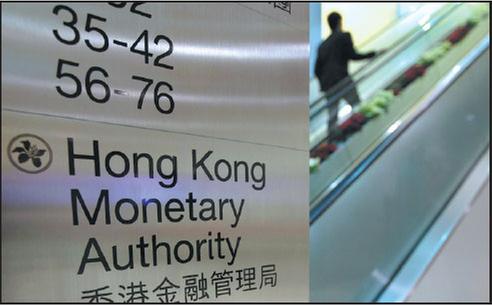The 'great pie' for anniversary of handover

The expected launch later this year of the Bond Connect - the third securities trading link between Hong Kong and the Chinese mainland - represents a pleasing gift for the city, which is celebrating the 20th anniversary of its return to the motherland.
Global bond-fund managers have hailed the latest linkup as one that will cement Hong Kong's role as a premier international finance center by facilitating cross-boundary fund flows from overseas to the world's third-largest bond market after the United States and Japan, with a total debt value estimated at $9.5 trillion.
Last month, the People's Bank of China, the central bank, and the Hong Kong Monetary authority - the city's de facto central bank - announced that the Bond Connect will kick off in phases, starting with northbound trading, which will allow overseas institutional investors in Hong Kong, as well as those in other countries and regions, to invest in bonds traded in the China interbank bond market.

There will be no investment quota set for northbound trading, and the date for the official launch will be announced later.
Southbound trading, which will enable mainland investors to invest in Hong Kong's bond market, will be "explored in due course", according to a joint statement from the PBOC and the monetary authority.
The two bodies have given the green light for the China Foreign Exchange Trade System and National Interbank Funding Center, China Central Depository and Clearing Co and Shanghai Clearing House, together with Hong Kong Exchanges and Clearing and the monetary authority's Central Moneymarkets Unit to conduct settlement and trading matters related to northbound trading.
"This will generate greater demand for Hong Kong's related financial services, such as custody and settlement, asset management, as well as risk management. The Bond Connect is another major move that uses Hong Kong as a platform to strengthen connectivity between the mainland and global capital markets," said Norman Chan, the monetary authority's chief executive.
Cindy Chen Jindan, Hong Kong securities services country head at Citicorp International said: "The great pie is there. Hong Kong will play a custodial role in channeling cross-boundary fund flows from overseas investors into the mainland onshore bond market. It's a win-win situation."
The Bond Connect is the fourth key measure the central government has taken in recent years to liberalize the country's capital markets, and is seen as an important first step in promoting internationalization of the yuan. It follows the launches of the Shanghai-Hong Kong Stock Connect in November 2014, the Mainland-Hong Kong Mutual Recognition of Funds Scheme in mid-2015 and the Shenzhen-Hong Kong Stock Connect late last year.
The PBOC has also said it will permit eligible foreign institutional investors to invest in the China Interbank Bond Market directly, along with quotas through the Qualified Foreign Institutional Investor and the Renminbi Qualified Foreign Institutional Investor programs.
The Bond Connect eliminates the need for overseas investors to comply with a number of onshore procedures and formalities associated with investing in mainland onshore bonds.
The mainland onshore bond market comprises the exchange-traded bond market, regulated by the securities watchdog, the China Securities Regulatory Commission, and the interbank bond market, regulated by the PBOC, which is significantly larger and more liquid. In February, the State Administration of Foreign Exchange said it will allow foreign institutional investors to access foreign exchange derivatives in the onshore market to hedge their onshore bond positions.
"We anticipate overseas investors will not immediately rush to snap up mainland onshore bonds because they already have the CIBM, QFII and RQFII channels. In addition, they have to gauge the interest rate and global macroeconomic environment before deciding how much capital to allocate to this asset class," said Angus Hui Tze-fung, Asian fixed income fund manager at Schroder Investment Management (Hong Kong).
Although it would not bring immediate benefits, the launch of the Bond Connect would fortify Hong Kong's bond market infrastructure and bolster offshore yuan-financing businesses in the city from a long-term perspective.
"We're hopeful HKEx can use the same technology to support the growth and development of the Hong Kong dollar bond markets as well," said Bryan Collins, fixed-income portfolio manager at Fidelity International.
Yue Yi, vice-chairman and chief executive at Bank of China (Hong Kong), said the bonds link could stabilize the yuan liquidity pool in Hong Kong and support the development of more yuan-denominated financing products.
"The program will enhance foreign exchange transaction volumes in the Hong Kong market and stimulate the development of financial products for hedging interest-rate and foreign exchange risks," Yue said.
In March, Premier Li Keqiang told the fifth annual session of the 12th National People's Congress that the direct bonds trading link between Hong Kong and the mainland could be up and running by the end of the year.
oswald@chinadailyhk.com
| A man rides an escalator near a directory board at the Hong Kong Monetary Authority, the city's de facto central bank.Tyrone Siu / Reuters |
- 'Ferryman of souls' escorts cremains of veterans from Taiwan to mainland home
- China announces month-long online shopping event for Spring Festival
- Hong Kong-Zhuhai-Macao Bridge reports record high passenger flows in 2024
- China launches action plan to tackle dementia amid aging population challenge
- Three found dead from overturned hoisting cage in Hohhot
- Spring Festival coins, banknotes start to exchange






































